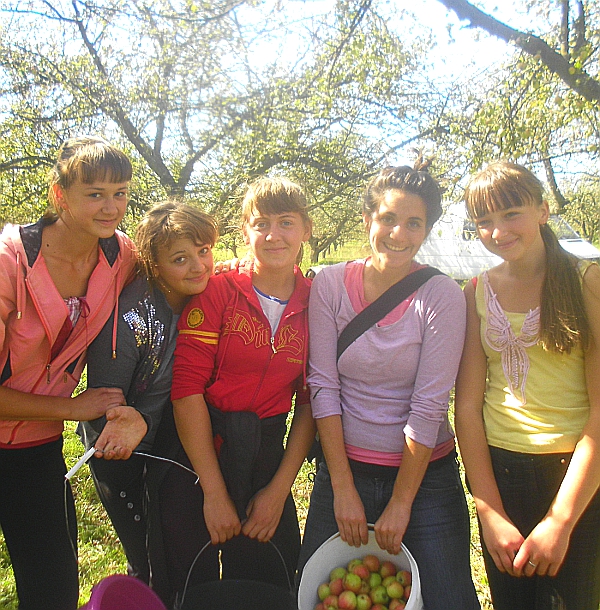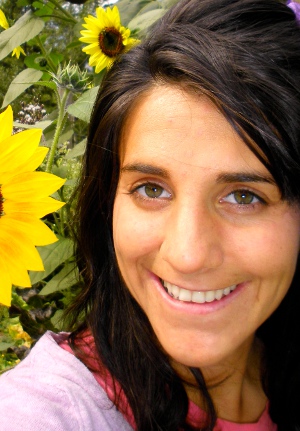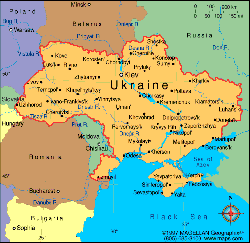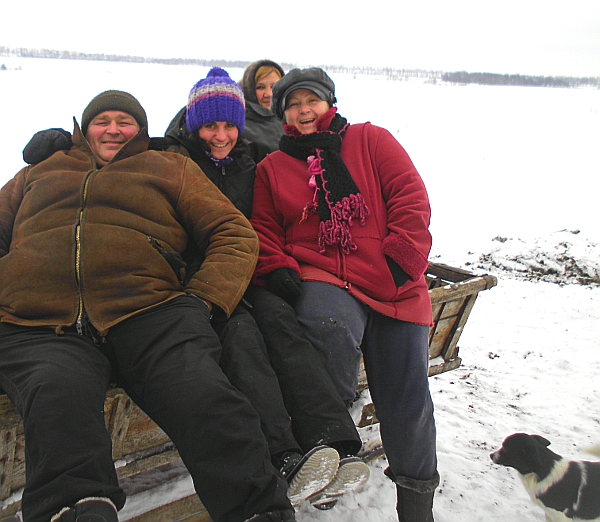Local woman learning new culture in Peace
Corps
|
|
January 28, 2013 |
 |
|
Molly Rivkin
(second from right) picking apples with
new friends in an orchard in the
Ukraine. |
|
By Molly Rivkin
Bonners Ferry
 |
|
Molly Rivkin |
After two years of applying to join the Peace
Corps, changing my mind repeatedly before fully
committing to it, and three months of intensive
language and cultural training, I found myself
in a small village in Central Ukraine.
I am a Youth Development Volunteer and work in
the village school, leading after-school
programs, teaching some English, healthy
lifestyle classes, and sports.
Though my work is not always clear cut, and I
rarely understand an entire conversation in
Ukrainian language, I am bumbling forward,
learning as I go.
Ukrainian culture never ceases to surprise me.
Ukraine has a long history of wars, enslavement
by oppressive governments, an atrocious deadly
forced famine, a nuclear meltdown, and a few
joyous moments of independence. Ukraine was part
of the Soviet Union, a communist government,
until it fell in 1991, allowing Ukraine to
pursue independence.
In the midst of its chaotic newly earned
independence and shift to a new government
system, Ukraine is still experiencing acute
growing pains. It is a country that is both new
and very old at the same time; this
juxtaposition makes itself apparent in Ukraine's
new and longstanding traditions, which baffle
and confuse me on a regular basis.
 |
|
Click for
larger image. |
A newer cultural enigma, the cellular phone, has
come with the rise of technology.
Most people have cell phones, even here in my
little village, and I haven't been able to
decipher a defined phone etiquette. Students
answer calls in class, teachers step out in the
middle of an exam to take calls, even priests
answer their phones while conducting religious
ceremonies.
An older tradition is hospitality. I cannot
stress enough the complete and utter importance
of food for Ukrainians, especially when
entertaining guests.
As a foreigner and guest I am often overwhelmed
by the amount of food served and the pressure to
eat it all. My Ukrainian hosts literally pile
food onto my plate as fast as I can eat it.
If I put my fork down for a second they urge me
to keep eating, saying things like, “don't feel
ashamed, eat as much as you want!” Also, simply,
“eat, eat, eat!”
Initially, I was a little embarrassed by the
loud conversation at meals, and constant
pressure to eat more and more. Now, I've learned
that when I'm done, I must simply put my fork
down and ignore the friendly heckling. I am told
this intense food tradition comes from the
forced famine, Holodomor, that Joseph
Stalin imposed on Ukraine during his brutal
reign.
 |
|
Molly enjoys
a snowy sleigh ride with friends through
the Ukrainian countryside.
|
Scholars disagree on exact estimates of the
death toll, and report anywhere from three- to
12-million Ukrainians starved to death during
normal weather conditions at peacetime.
This catastrophe left Ukrainians with a deep
rooted appreciation for food, and a near
obsession with feeding each other.
Ukraine is smaller than Texas, and has little
diversity, apart from The Autonomous Republic of
Crimea, which is home to many Muslim Tatars and
small concentrations of Romani people, mostly in
Western Ukraine.
Two languages are regularly spoken, Ukrainian in
the West with sprinklings of Polish, and Russian
in the East.
There is no clear boundary where one language
starts and the other ends.
When the Soviet Union was in power, Russian was
the official language, but people often spoke
Ukrainian in their homes. When Ukraine gained
independence, Ukrainian became the official
language, and is now largely taught in schools.
Through the marriage of these two languages a
third has emerged: Surzhyk. Living in Central
Ukraine and studying “clean” Ukrainian language,
trying to navigate yet another language can be
confusing and discouraging.
The blending of the two languages has become so
complete that people often do not know which
they are speaking.
Ukraine is endlessly interesting, with its
languages, culture, traditions, history, and
people. The Ukrainians I've met are some of the
more lively, generous, and welcoming people I
have ever come across. Though their lives are
often difficult, and their history painful, they
are still lovers of poetry, theater, song, and
dance. Their weddings last up to three days, and
they celebrate more holidays than I can keep
track of.
If you want to learn more about my experience in
Ukraine, I blog at
www.mollyrivkin.blogspot.com, and welcome
you to visit.
Molly Rivkin, the daughter of Linda
Richardson and Mitch Rivkin, is a 2005 graduate
of Bonners Ferry High School. |
|
Questions or comments about this
letter?
Click here to e-mail! |
|
|
|
|

